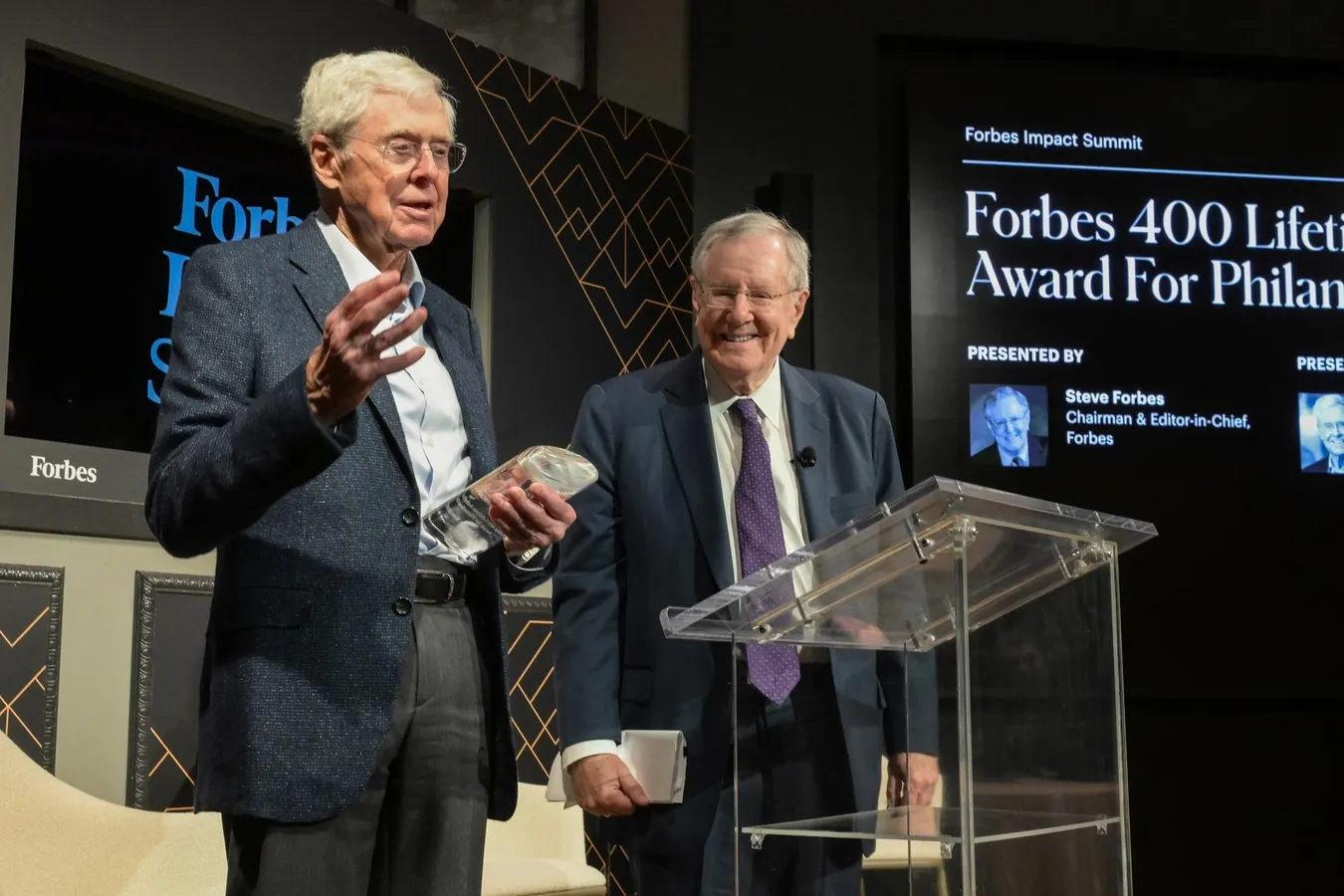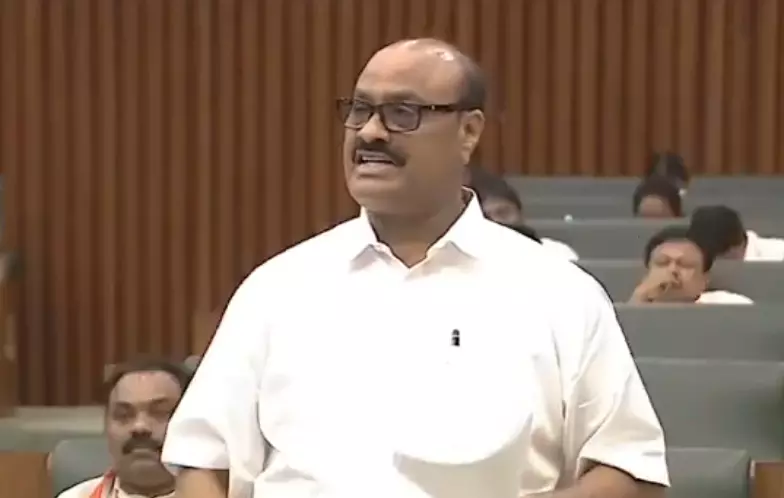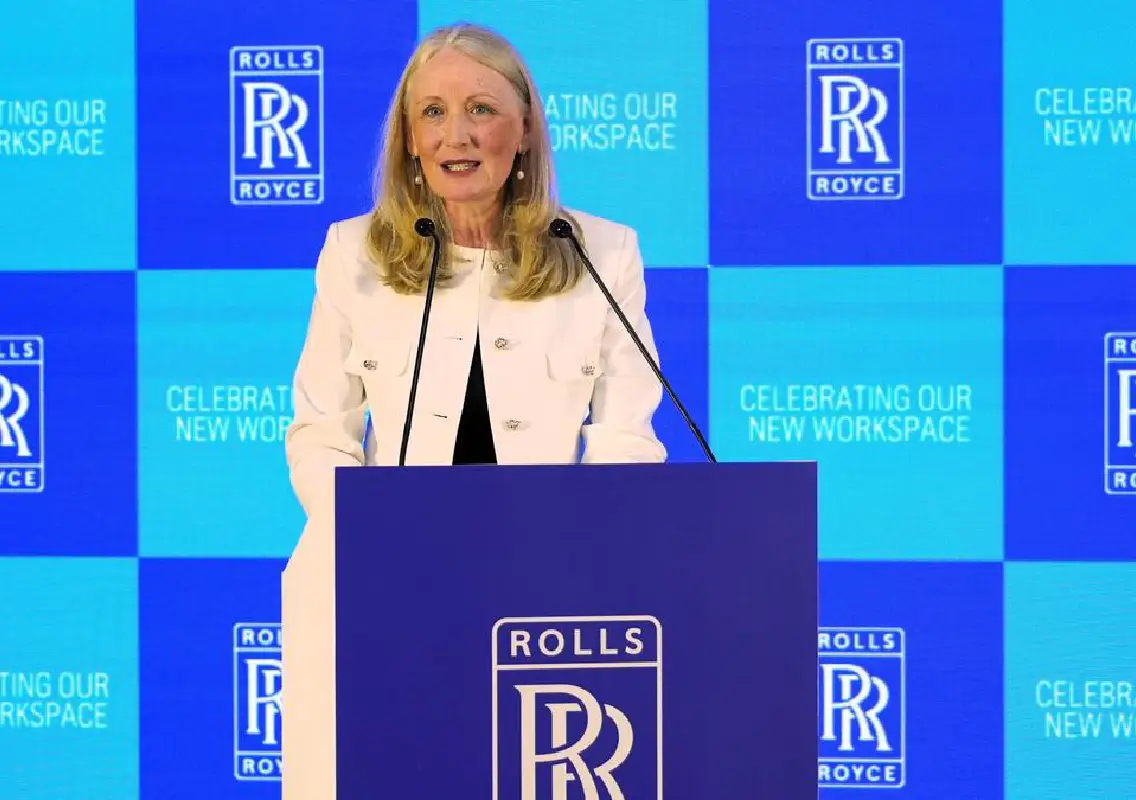By Forbes Staff,Forbes Wealth Team,Steve Forbes
Copyright forbes

“People have lost faith in the government to solve big problems. People have lost faith in big corporations to solve big problems,” Forbes Chief Content Officer Randall Lane said as he welcomed 100 attendees to the 2025 Forbes Impact Summit on September 25, 2025 in New York. “Now, more than ever before, it falls on philanthropists to take that risk capital and solve problems.”
While there has been incredible growth in wealth and success in the United States over the years, all sorts of issues have compounded at faster rates, Lane continued. For 13 years, Forbes has hosted its annual Forbes 400 Summit on Philanthropy—presented as the Forbes Impact Summit for the first time in 2025. The event brings together the high-net-worth principles, next-generation stakeholders and powerful practitioners behind philanthropic efforts that aim to address the world’s most intractable problems. This year’s two-day event featured speakers ranging from the world’s most successful business leaders to legendary entrepreneurs such as Charles Koch, Shari Redstone and Noubar Afeyan to next generation voices including Phoebe Gates, Hilary Hamm and Emily Kaiser, as well as thought-provoking dialogue among attendees on executing impactful change with capital.
Steve Forbes, Geoffrey Canada and Stanley Druckenmiller speak about philanthropy in education to begin the 2025 Forbes Impact Summit.
Jamel Toppin for Forbes
Education’s Superman
Kicking off the event on Thursday, Geoffrey Canada, president and founder of Harlem Children’s Zone, and Stanley Druckenmiller, chairman and CEO of Duquesne Family Office, spoke on the power of education in transforming communities. Canada opened by sharing how his own experiences growing up in poverty, violence and tough circumstances motivated him to help others break cycles of intergenerational poverty. “You’ve got to give kids a belief that they have a future and ensure they are able to live in a community that looks like somebody cares about them,” Canada said. “It’s not just about that child. It’s about the generations that are going to follow.”
Druckenmiller, moved by Canada’s story and leadership decades ago, has backed Harlem Children’s Zone with well over one-hundred million dollars over the years to help establish charter schools and roll out educational programs in over 20 cities across the U.S. “We had a lot of failures in the first 20 years. But we used data and learned from those failures,” the former hedge fund manager said. “I’m hoping this becomes a model for the rest of the country and all around us.”
Canada was awarded the Forbes 400 Lifetime Achievement Award for Social Entrepreneurship for his commitment and impact not only in Harlem communities but also across the globe. The award celebrates individuals for their long-term, large-scale, groundbreaking initiatives toward important and pressing causes. Past awardees include Dikembe Mutombo, Volodymyr Zelenskyy, Jane Goodall, Alice Waters, Matt Damon and Gary White, Jacqueline Novogratz, Paul Farmer, Wendy Kopp and Muhammad Yunus.
The Rule Of Three
The morning continued with three conversations with three big givers on three big issues.
Shari Redstone, CEO of Redstone Family Foundation, spoke on her philanthropic efforts to address antisemitism and hate: “One of the most powerful things that I’ve learned is that it’s hard to hate somebody sitting across from you at a table, somebody you can have civil discussion with. People get caught up in ideologies, but at the end of the day we do have so much more in common than we disagree on.” As former chairwoman of Paramount, she highlighted the power of content like film and TV in helping start conversations, sparking empathy and building relationships around issues of identity. “Teach your children to love before they learn to hate,” Redstone said.
Frank H. McCourt, founder of Project Liberty, then took the stage to discuss efforts in reimagining the role of technology in society. “As technology is now shifting from web 2.0 to a web driven by AI, this is a massively important moment for us to take a step back, look at the harms that the current technology is creating and solve for that fundamentally,” he said. With the world’s largest corporations controlling and monetizing people’s data, he discussed his $500 million effort to build the next generation of technology on a set of principles that are more human-centered and return agency to people, not corporations.
Lastly, Jim Coulter, cofounder and executive chairman of TPG where he is also the managing partner of The Rise Fund and TPG Rise Climate, drew from his years as an impact investor. Coulter refuted the myth that impact investments require a sacrifice either in returns or impact, instead arguing that impact investing can bring both optimal returns and maximum impact. Given the dramatic improvement in knowledge and tools, as well as the vast scale of issues at hand, Coulter made a bold prediction for the future: “What you’re going to see over the next few years is much less talking and much more activity.”
Philanthropic Mentorship And Stories From The Frontlines Of Scalable Giving
Marie Dageville, cofounder of The Patchwork Collective, and Cari Tuna, cofounder and chair of Good Ventures and chair of Open Philanthropy, shared insights from their unexpected starts in philanthropy with their billionaires spouses Benoit Dageville and Dustin Moskovitz, respectively. Starting philanthropy with no prior experience or family connections, Tuna said the most common advice she received was to work on something she was passionate about. But, she took her own stance: “By definition, donors come from relatively wealthy and healthy circumstances, and if we only focus on the things that have touched us personally, we may be missing some of the best opportunities to help others and especially the most disadvantaged people.” She added that she finds most meaning in working on neglected opportunities that have massive scale.
Dageville, one of Tuna’s mentees, has also carved her own path in the causes and scale she pursues. “There is some work that has to be done at the hyperlocal level. Context in one community can’t always be representative somewhere else,” she said, highlighting that philanthropic efforts do not always need massive scale to have meaningful impact.
Private-Sector Levers To Make Change At Scale
Charles Koch, chairman and co-CEO of Koch and founder of Stand Together, and Brian Hooks, chairman and CEO of Stand Together, took the stage for the final panel of the morning. Principles grounded on improving other people’s lives have driven Koch in both business and philanthropy. “We apply the same principles in business that we do in philanthropy, or vice versa…When I’ve applied these principles, I’ve been able to contribute and succeed. And when I haven’t, I’ve failed,” he said.
Randall Lane, Charles Koch and Brian Hooks participate in a panel during the 2025 Forbes Impact Summit.
Jamel Toppin for Forbes
Hooks echoed those principles of human progress: “When we succeed by helping others to succeed, we push out the frontiers of progress,” he said. “As Americans, we find meaning in our lives by contributing to the lives of others, so when you work hard, treat people well and succeed by helping others to succeed, there’s no problem that we can’t tackle.”
Koch was awarded the Forbes 400 Lifetime Achievement Award For Philanthropy. Koch has given away nearly $2 billion of his fortune over his lifetime. Past honorees include Warren Buffett, Chuck Feeney, Bill and Melinda Gates, Ted Turner, Eli Broad, David Rockefeller, Paul Allen, Sandy and Joan Weill, Jim and Marilyn Simons, and Bernie and Billi Marcus.
Navigating Next-Gen – Bridging Values, Vision, Strategy
Following a wine lunch for attendees, Noubar Afeyan, founder and CEO of Flagship Pioneering, and his daughter Armine Afeyan, CEO of The Aurora Humanitarian Initiative, took the stage to discuss philanthropy across generations. Noubar Afeyan opened with his background as an immigrant and refugee, and how this background has shaped his philanthropy. “As I achieved some level of success, I always felt a sense of obligation to do something,” Noubar Afeyan said, “My great aunt always told me the only way to come back from a genocide is to exceed what it is we used to be before we were almost exterminated.”
That obligation is felt across generations, Armine Afeyan said, adding that a deep sense of gratitude for her circumstances and pride in family history has contributed to her approach to philanthropy. “Humanitarians are the ultimate entrepreneurs—doing the most difficult innovating, leading, adapting, and forming unlikely partnerships,” she said.
Beyond the Boardroom – Family Wealth As A Force For Enduring Good
Hilary Hamm, chair of Hamm Family Council, and Emily Kaiser, board member of George Kaiser Family Foundation, continued the conversation of generational forces by discussing their experiences as children continuing on the philanthropic legacies of their parents. “I think it’s absolutely critical to see how other people are being raised and seeing diversity around the world,” Hamm said as she explained how the diverse experiences her parents provided during her Oklahoma upbringing now informs her philanthropy.
Luisa Kroll, Hilary Hamm and Emily Kaiser discuss strategies for next-generation legacy-planning during the 2025 Forbes Impact Summit.
Jamel Toppin for Forbes
Kaiser added that early conversations and communication with her parents shaped her worldview and informs how she is raising her own children as the next generation of philanthropists. “One of the values that our parents really instilled in us was education and intellectual curiosity,” she said. “Having those dinner time conversations around what we see and what we don’t see around us can be really instructive.”
Spotlight On Philanthropic Philosophy: A German Perspective
Thursday’s final speaker was Tobias Merckle of the wealthy Merckle family and founder of Seehaus and Hopebearer Foundation, who brought a global perspective to the room. Merkel said his efforts in integrating people—whether in Germany’s criminal justice system or its refugee population—has been a meaningful effort albeit an uphill battle both in implementing policy and execution. He added that he hopes to see more European entrepreneurs and philanthropists talking about their successes and failures to create a greater movement around philanthropy and what it can do to local communities.
The day concluded with a roundtable discussion led by Lane on how to apply the learnings from the speakers, including thoughtful comments on feedback, new ideas for collaborations and topics in need of further discussion.
Additional content forthcoming.
More from Forbes
ForbesHow The Raising Cane’s Founder Built A $22 Billion Chicken Finger Empire That’s Snoop Dogg’s Favorite Fast-Food ChainBy Chase Peterson-WithornForbesTesla’s Full-Self Driving Software Is A Mess. Should It Be Legal?By Alan OhnsmanForbesVeritas Capital Raises $14.4 Billion To Be DOGE’s Biggest Private Equity AllyBy Hank TuckerForbesHow Small Businesses Are Really Using AIBy Brandon KochkodinForbesHere’s How Much Donald Trump Is WorthBy Dan Alexander
Got a tip? Share confidential information with Forbes.
Editorial StandardsReprints & Permissions



